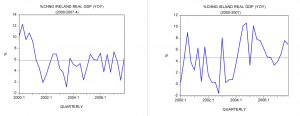Cobden Centre Senior Fellow Detlev Schlichter has published the text of a recent talk about the a priori approach of Ludwig von Mises to economics. A video of the presentation can be found here.
I include the following extract, which gives a sense of the difference between Mises and other contemporary economic theories:
Brief sketch of Mises’ position
Mises argued that economics was an a priori science. Economics is fundamentally different from the natural sciences in terms of subject matter, method, and the type of statements it can make. The natural sciences are (mainly, at least) empirical sciences (a posteriori as opposed to a priori). Economics is not an empirical science. It does not discover the regularities that constitute its laws through observation (for example, the collection and interpretation of statistics) or laboratory experiments (difficult in economics) but through careful logical deduction from certain starting propositions (axioms), although some observation may be involved in establishing these starting propositions. Because it is not an empirical science, it does not make empirical predictions and its key theses are not testable by empirical means. (If this sounds strange to you, don’t worry. Most economists today disagree with Mises and practice, or believe they practice, a different kind of economics, though in my view, they are quite mistaken.



Those “economists today (who) disagree with Mises and practice, or believe they practice, a different kind of economics…” are worse than merely mistaken. They are in charge.
@GT Very neat. Made me giggle